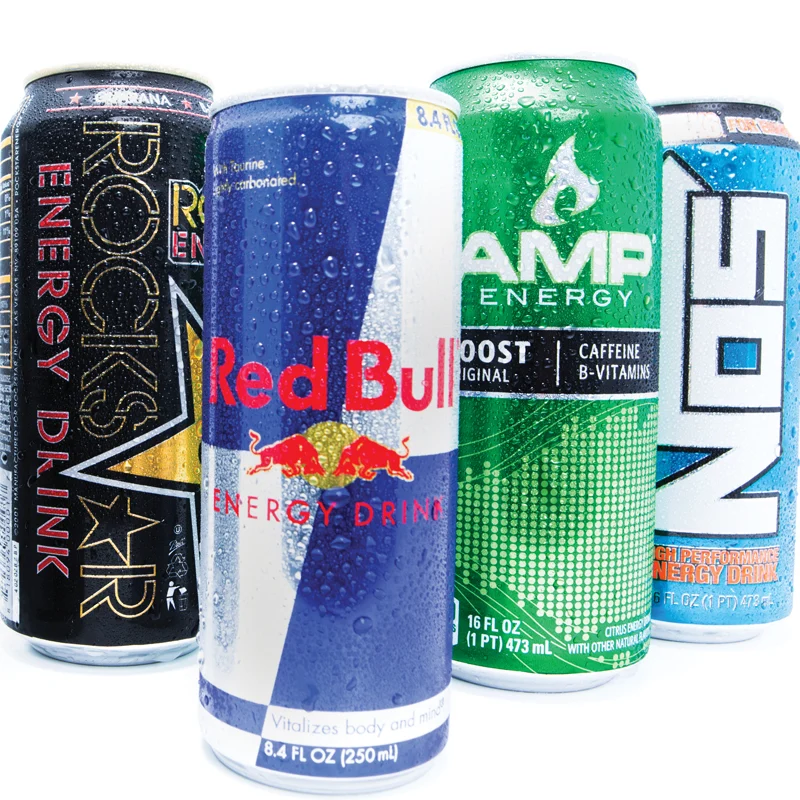
In a fast-paced world where demands on our time and energy seem to be ever-increasing, many turn to energy drinks as a quick fix to combat fatigue and stay alert. The shelves of convenience stores are lined with an array of colorful cans, promising an instant boost to vitality. However, beneath the enticing packaging and bold claims, there lies a complex landscape of health considerations that consumers should be aware of.
Understanding the Appeal: The Promise of Instant Energy
Energy drinks have gained popularity for their promise to provide a rapid energy boost, often attributed to key ingredients such as caffeine, sugar, and various proprietary blends of vitamins and amino acids. The appeal is clear – a can of liquid energy to power through a hectic day, a late-night study session, or a demanding workout. But do these concoctions deliver on their promises, and at what cost to our health?
The Caffeine Conundrum: Balancing Boost and Risk
Caffeine, a central component of most energy drinks, is a stimulant that temporarily wards off drowsiness and restores alertness. While moderate caffeine intake has been associated with cognitive benefits and increased physical performance, excessive consumption can lead to adverse effects. Many energy drinks contain caffeine levels that surpass those found in a standard cup of coffee, often accompanied by other stimulants.
Consuming high doses of caffeine can result in increased heart rate, elevated blood pressure, and disrupted sleep patterns. Individuals with pre-existing health conditions, such as cardiovascular problems or anxiety disorders, may be particularly susceptible to these side effects. Additionally, habitual excessive caffeine intake can lead to dependence, withdrawal symptoms, and a negative impact on mental health.
It is crucial for consumers to be aware of their own tolerance levels and consider the cumulative intake of caffeine from various sources, including coffee, tea, and chocolate, in addition to energy drinks. Striking a balance between reaping the benefits of caffeine and avoiding its pitfalls is essential for a sustainable and healthy lifestyle.
The Sugar Dilemma: Sweet Boost or Sour Consequences?
While caffeine is a well-known player in the energy drink formula, the high sugar content present in many of these beverages is often overlooked. The intense sweetness not only masks the bitter taste of caffeine and other ingredients but also contributes to the energy-boosting effect. However, the downside is that excessive sugar intake is associated with a myriad of health issues, including obesity, type 2 diabetes, and dental problems.
Energy drinks can contain alarming amounts of added sugars, far exceeding the recommended daily limit. Regularly consuming such high levels of sugar can lead to insulin resistance and an increased risk of chronic diseases. Opting for sugar-free or low-sugar alternatives is a sensible choice for those looking to enjoy the perks of energy drinks without compromising their long-term health.
Beyond the Buzz: Exploring Additional Ingredients
Beyond caffeine and sugar, energy drinks often contain a variety of other ingredients, including B-vitamins, amino acids like taurine, and herbal extracts. While some of these components can contribute to the overall energy-boosting effect, the long-term health implications of certain additives remain uncertain.
Taurine, for example, is an amino acid found naturally in the body and commonly included in energy drink formulations. While research on taurine is ongoing, its precise role in energy metabolism and potential health impacts are not fully understood. Additionally, the combination of ingredients in proprietary blends makes it challenging for consumers to assess the safety and efficacy of these drinks accurately.
Navigating the Market: Making Informed Choices
As the energy drink market continues to expand, consumers are faced with an overwhelming array of choices. Making informed decisions about which products to include in one’s lifestyle requires careful consideration of individual health needs and preferences.
- Read Labels: Pay close attention to the nutritional information and ingredient lists on energy drink labels. Look for products with transparent labeling that clearly indicates the amount of caffeine, sugar, and other key components.
- Consider Alternatives: Explore alternative ways to boost energy without relying solely on energy drinks. Prioritize a balanced diet, regular exercise, and sufficient sleep as foundational elements of a healthy lifestyle.
- Stay Hydrated: Energy drinks are not a substitute for water. Maintaining proper hydration is essential for overall well-being and can contribute to sustained energy levels.
- Know Your Limits: Be mindful of individual tolerance levels for caffeine and other stimulants. If you have underlying health conditions or concerns, consult with a healthcare professional before incorporating energy drinks into your routine.
- Monitor Intake: Keep track of your overall caffeine and sugar intake, considering all sources, not just energy drinks. Moderation is key to minimizing potential health risks.
Conclusion: Striking a Balance for Sustainable Energy
In the quest for quick energy fixes, it’s essential to approach the world of energy drinks with a discerning eye. While these beverages can provide a temporary boost, the potential health risks associated with excessive caffeine and sugar consumption should not be ignored. By understanding the ingredients, considering individual health factors, and making informed choices, consumers can strike a balance that supports sustained energy levels without compromising long-term well-being. Ultimately, the key lies in embracing a holistic approach to health, where energy drinks, if consumed, are just one small part of a broader strategy for maintaining vitality and resilience in the face of life’s demands.
